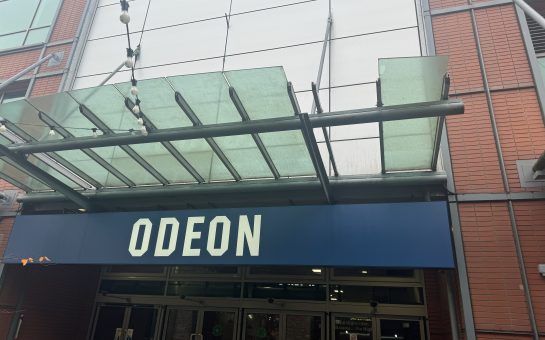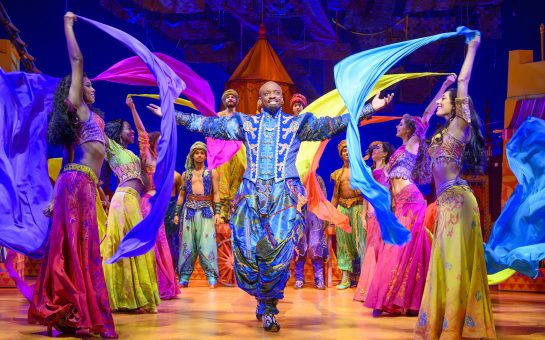Over the last few years, the internet has allowed access to a range of content from across the world.
Is it any surprise that there has been an increase in the number of people listening and watching things from different countries, especially from countries in Asia?
Yet, even with this increased popularity of Asian culture, there still seems to be barriers in place when discussing Asian representation in the entertainment industry, especially within the film industry.
It is impossible to say that there aren’t movies portraying Asian minorities at all. However, the way that the industry, in particular Hollywood, has portrayed these characters has caused a lot of controversy.
The resurgence of the issue stemmed from the release of the film Ghost in the Shell. The movie adaptation of the Japanese manga raised criticisms due to the casting of Scarlett Johansson as the main character Major Mira Killian who is meant to be Japanese.
This subjected the film to accusations of ‘white-washing’ which, in the movie industry, is a casting practice where white actors are cast in non-white character roles.
Another example of this was the casting of the live-action remake of Disney’s Aladdin. The story is meant to be set in Asia and the people are meant to be of Arabian descent. There was some controversy with the casting of the leads, but an interview with supporting actor Kaushal Odedra for BBC Newsbeat has highlighted more pressing concerns.
Odedra explained that he witnessed many white actors being transformed to look more Arabian. Although Disney has defended this by saying it was it done ‘as a matter of speciality skills, safety and control’, it is hard to believe that they could not find anyone of Asian heritage for these roles.
Disney’s #Aladdin is the #1 Movie in the World.
See the film now playing in theaters. Get tickets: https://t.co/ltKfjPbMyJ pic.twitter.com/kX5UW9ZSXr
— Disney’s Aladdin (@disneyaladdin) May 26, 2019
British actor Ed Skrein also shone a spotlight on the issue after pulling out of a role last year in the reboot of Hellboy after a public backlash from his casting as a character of Asian heritage.
No matter how big or small the casting, or whether there was justification for the decision or not, examples such as these seem to highlight the problems within the industry.
It has reignited not only a debate on representation but also a fight for equality as Asian actors and actresses are being overlooked in favour of those of Western descent, even when the films are based around the Asian culture.
Born in Los Angeles to a German father and Chinese mother, 23-year-old US singer/ songwriter Will Jay Behlendorf is one of those fighting for representation in the media.
In 2017, Jay released his song Leading Man which looks at the idea of race and representation specifically in the setting of Hollywood.
Speaking to Will about the inspiration of the song, he explains that it stemmed from not only the news of a live-action remake of Disney’s Mulan but also feelings that had surfaced from the release of films such as Ghost in a Shell.
“I was really excited because it’s my favourite Disney movie but then I had this really strange thought of like what if they don’t case Asian actors and actresses for it. It was also at the peak of the whitewashing controversy with Scarlett Johansson being a Japanese woman.
“I had this kind of yearning for representation and so I thought, what if I write a song about me wanting to be a leading man because, as an Asian American, I don’t believe you see a lot of that in Hollywood. It came from a place of just wanting to be seen and heard.”
In the music video, Will’s character is at a movie audition where he seems to be perfect for the role with his voice and acting ability. However, he is overlooked for an actor who can’t sing but has that ‘look’, which happens to be pale skin, blonde hair and blue eyes.
The video then shows Will looking at various Hollywood posters and changing his appearance to have this stereotypical Hollywood look which gets him his dream role. Towards the end of the video, his character realises that he shouldn’t have to change to fit a role and reverts back to his original self with black hair and brown eyes.
“I thought it would be a very thought-provoking visual for me to do the inverse of white-washing because that doesn’t happen. I knew the kind of fire I had when writing the song, I wanted it to have a really strong visual to match it.”
The lyrics and music video look specifically at the serious issue within the entertainment industry and the idea of the lack of ethnic minorities, especially Asian cultures, getting major roles in Hollywood.
Although Asian representation in the media industry is important in itself, it goes hand in hand with the feeling of being a minority within a country.
Will Jay explained that there weren’t many A-List Asian American singers growing up and a lack of Asian American role models within mainstream media which emphasises this issue.
That is not to say that things are not improving in the industry very slowly.
The release of films such as the award-winning Crazy Rich Asians and Always Be My Maybe are definitely a step in the right direction. Both films have shown these improvements with the main characters and directors of these films being of Asian heritage.
To all the Boys I’ve Loved Before is another film which is evidence that the world of cinema is slowly changing.
Lana Condor, who plays the lead Lara Jean, was born in Vietnam before being adopted by American parents. Alongside the new British film Yesterday, with lead star Himesh Patel, we are starting to see films with an ethnic lead in a story that has no link with race or religion.
Sequel? Sequel. #ToAllTheBoysIveLovedBefore pic.twitter.com/njb6e1IZxM
— To All The Boys I’ve Loved Before (@alltheboysfilm) December 19, 2018
The directors of these films and the willingness of Asian celebrities to fight for this cause has created an environment for Asian children to be proud of their heritage and not want to change to ‘fit in’ but having role models to influence them.
However, although seeing a clear improvement, like many others, Will believes there will always be a fight for representation.
“At the end of the day, especially in America, we live in a society where white people just have a privilege that comes with being white and this transcends into all mediums.
“I think it will always be an uphill battle, but I’m prepared to fight and be someone who can represent.
“The world gets more diverse and those kids need representation, so I think with every year it’s going to be more and more important to fight for that.”
With the world falling in love with the different cultures, it is about time that the movie industry itself keeps up with the times and focuses on creating content that accurately represents the Asian community.



